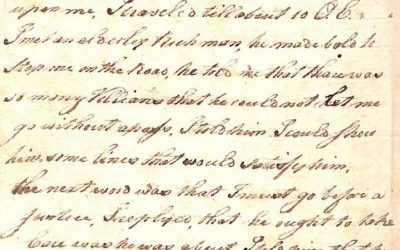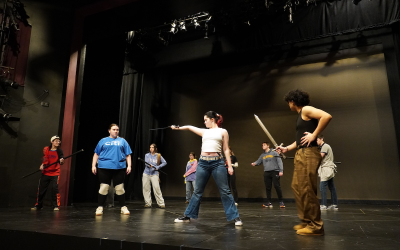Jinee Lokaneeta’s study explores pre-trial treatment of the accused in India
August 2024 – Drew University Professor Jinee Lokaneeta recently published a first-of-its-kind study on pre-trial treatment of the accused in India.
Lokaneeta, professor of political science and international relations, and associate dean of curriculum for Arts and Sciences co-authored the report, Magistrates and Constitutional Safeguards: An Ethnographic Study of First Production and Remand, with Zeba Sikora at National Law University, Delhi, Project 39A, a premier research center that focuses on equal justice and opportunity for all. Lokaneeta served as a visiting professor at NLU from 2020-2023.
Lokaneeta and Sikora led a team of eight postgraduate researchers who observed the Delhi courts for three months in 2022-2023. The team found that basic constitutional rights have not been focused or fully realized in the pre-trial phase of the cases they researched.
The 188-page report was well received when launched at a panel in Delhi, featuring the authors and two of the project’s researchers. During the panel, Dr. S. Muralidhar, senior advocate and former Chief Justice, High Court of Orissa, observed that the report holds a mirror not just to the judges in the district judiciary, but to lawyers, legal aid counsel, and the police. Muralidhar further suggested it be made part of the compulsory reading material at judicial and police academies.
The study explored whether constitutional safeguards regarding illegal arrest and torture in India were ensured in the pre-trial stages in the Magistrate Courts in Delhi, the lowest court in the judicial hierarchy. Despite safeguards, most magistrates do not utilize the tools available for ensuring that these rights are protected for those taken into custody.
The study, the first of its kind, not only investigated whether the paperwork in a given case was complete, but the dynamics of court interactions between magistrates, court staff, police, lawyers, and the accused and their families.
The study found that even though some of the magistrates were sympathetic to the accused at times, the current structure of the magistrate’s daily work does not allow for the first production or remand hearings to be taken as systematically as should be done, thereby failing to protect the rights of the accused.
Lokaneeta has previously taught the courses Law, Justice, and Society; Torture: Pain, Body, and Truth; and Policing and the Rule of Law, which were crucial to the writing of her books on state power and legal violence—Transnational Torture (2011) and The Truth Machines (2020).
Lokaneeta brings lessons to her classes at Drew, discussing policing, violence, and the role of law with students.
“Legal actors like the magistrates we observed for this study have come up prominently in my classes, which contributed towards the genesis of this project,” she said.
The study was partly supported by Drew University research grants and was conducted during Lokaneeta’s sabbatical.



